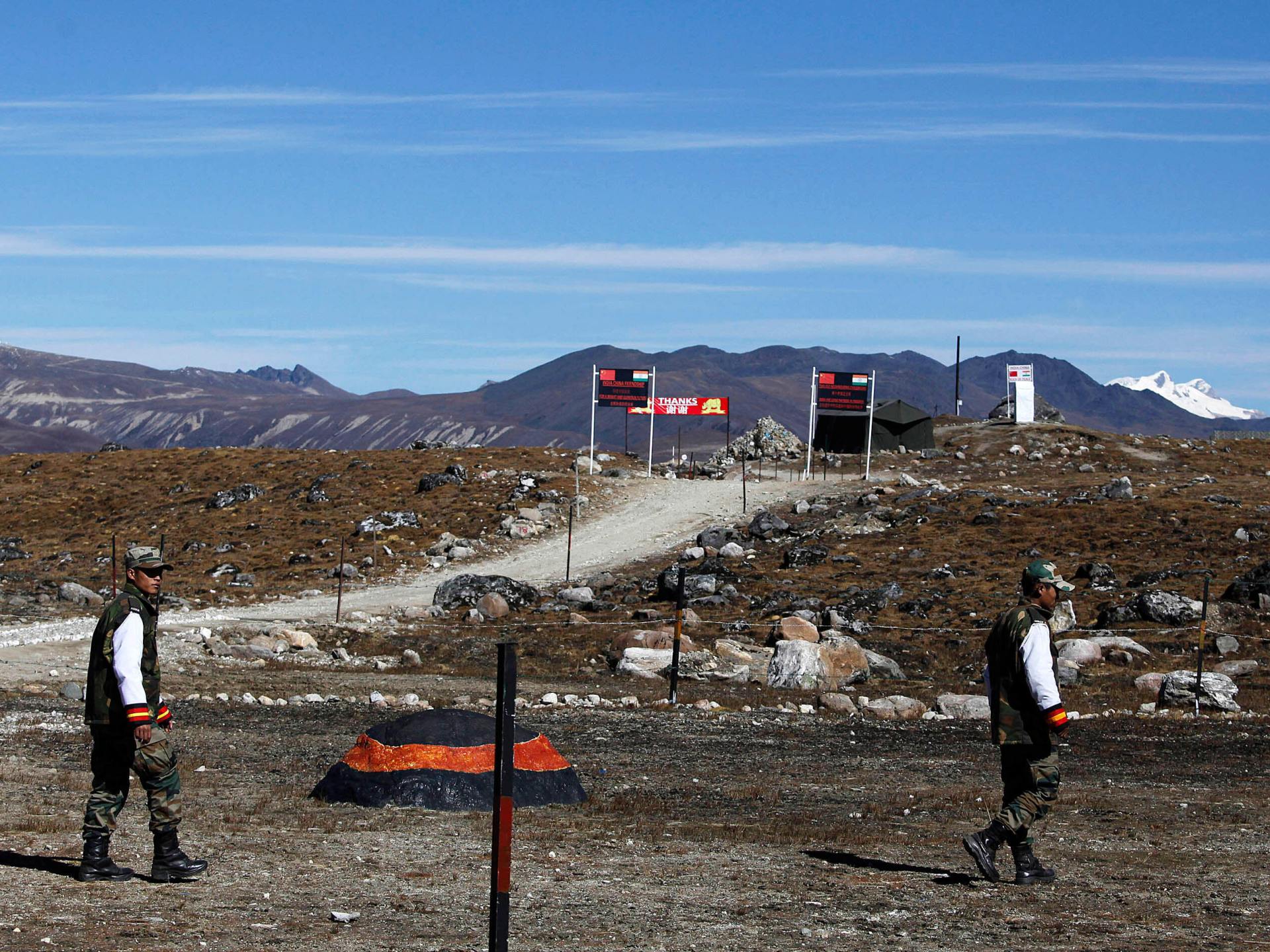India-China Tensions Flare: Woman Detained in Shanghai Over Arunachal Pradesh Passport Claim, Reigniting Border Dispute
 India
Geopolitics
India
Geopolitics

India-China tensions escalate after an Indian woman was detained at Shanghai airport over her Arunachal Pradesh passport. China claims the region as Southern Ti
India-China Tensions Flare Over Arunachal Pradesh Passport Incident in Shanghai
A recent incident at Shanghai Pudong International Airport has reignited long-standing border tensions between India and China, shattering a period of relative calm. The controversy centers on the alleged harassment of Prema Wangjom Thongdok, an Indian citizen, by Chinese authorities, who declared her passport "invalid" due to her birthplace being Arunachal Pradesh – a region China controversially claims as Southern Tibet, or Zangnan.
The Shanghai Ordeal
Thongdok, a UK resident, was en route from London to Japan, with a scheduled three-hour layover in Shanghai. What followed was an 18-hour ordeal. After successfully passing through an e-gate at immigration, she was singled out by an official who reportedly screamed "India! India!" before questioning her passport's validity. According to Thongdok, the official asserted, "Arunachal is part of China. Your passport is invalid." She vehemently countered, "Arunachal is part of India. I’ve never heard of it being part of China."
Throughout her extended detention, Thongdok reported being pressured to purchase a new ticket on China Eastern Airline, with hints that her passport would be withheld until she complied. This resulted in financial losses from missed flights and hotel bookings. Eventually, with assistance from a friend and the Indian consulate in Shanghai, she was escorted onto a late-night flight out of China. Intriguingly, Thongdok had transited through Shanghai without incident just a month prior, leaving the reason for this sudden change unclear.
A History of Stapled Visas and Border Claims
This isn't an isolated incident but rather the latest manifestation of China's consistent stance on Arunachal Pradesh. Since 2005, Beijing has employed a policy of issuing "stapled visas" to residents of Arunachal Pradesh instead of the standard stamped visas. China's rationale is that it cannot issue regular visas to individuals it considers its own citizens. India, however, has steadfastly rejected these stapled visas, viewing their acceptance as a tacit acknowledgment of China's territorial claims over the northeastern Indian state.
Numerous sporting events have seen Indian athletes from Arunachal Pradesh denied participation or face obstacles due to this visa policy. In 2013, archers were barred from traveling to China. More recently, in July 2023, martial arts athletes received stapled visas for the World University Games in Chengdu, leading to the withdrawal of the entire Indian wushu team. The same athletes faced accreditation issues for the Hangzhou Asian Games in September 2023, prompting India's Sports Minister Anurag Thakur to cancel his visit in protest.
The McMahon Line and Escalating Tensions
The roots of the India-China border dispute over Arunachal Pradesh trace back to the British colonial era. In 1914, during the Simla Convention, the McMahon Line was drawn, defining the border between British India and Tibet. While Chinese delegates participated, they never formally signed the main agreement, leading China to reject the line's legitimacy. Beijing argues that Tibet lacked the authority to unilaterally decide on the border, especially after China's annexation of Tibet in 1951. India, having gained independence in 1947, considers the McMahon Line its de facto border.
For decades, China's claim was limited primarily to Tawang, a portion of Arunachal Pradesh. However, under President Xi Jinping, who assumed power in 2012, China has adopted a more assertive and expansive approach, now claiming the entire state. This "muscular approach" has not only strained relations with India but also fueled territorial disputes with many other neighbors, notably in the South China Sea. India, under Prime Minister Narendra Modi since 2014, has also pursued a more assertive foreign policy, including on border issues, signaling a firm stance against Chinese claims.
Strategic Importance and Past Clashes
Arunachal Pradesh holds immense strategic and religious significance for both nations. For India, it serves as a vital link to Southeast Asia, sharing borders with Myanmar and proximity to Bhutan. It is a critical military district, connecting India to Thailand, Laos, and beyond via infrastructure projects like the India-Myanmar-Thailand Trilateral Highway. For China, the region is religiously significant, being the birthplace of the sixth Dalai Lama near Tawang in 1683. China views Arunachal Pradesh as an extension of Tibet, and India's granting of sanctuary to the current Dalai Lama in 1959 remains a point of contention.
The state has historically been a flashpoint. It was a key theater in the 1962 Sino-Indian War. While the Arunachal Pradesh border remained largely peaceful for nearly half a century after a 1975 skirmish, other forms of contention persisted. In 2012, China opposed the Dalai Lama's visit to the state. Minor border scuffles broke out in Tawang in December 2022, with both sides accusing each other of aggression. More recently, China approved a dam construction in Medog County, Tibet, near the Indian border, prompting India to counter with its own Siang Upper Multipurpose Project in Arunachal Pradesh, despite environmental and displacement concerns.
In September 2024, India further asserted its sovereignty by naming a mountain peak in Arunachal Pradesh after the sixth Dalai Lama, a move met with strong condemnation from China, which reiterated its claim over Zangnan. This ongoing saga underscores the deep-seated nature of the dispute, with both nations expressing unwavering commitment to their territorial integrity. As Chinese Foreign Ministry spokesperson Mao Ning stated regarding the Shanghai incident, "Zangnan is China’s territory. The Chinese side has never recognised the so-called Aruna..."